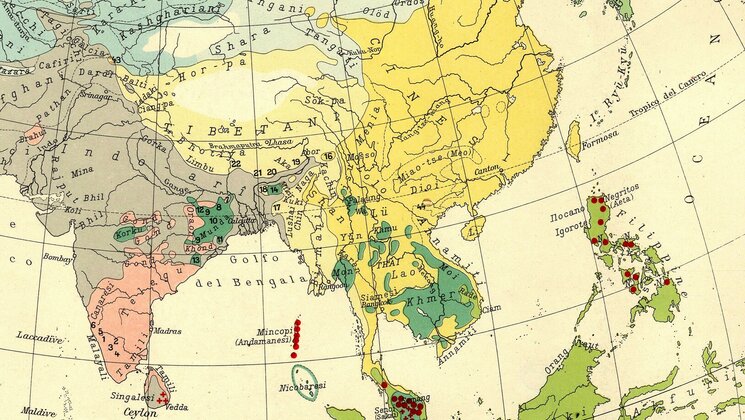-
Faculty of Arts and HumanitiesDean's Office, Faculty of Arts and HumanitiesJakobi 2, r 116-121 51005 Tartu linn, Tartu linn, Tartumaa EST0Institute of History and ArchaeologyJakobi 2 51005 Tartu linn, Tartu linn, Tartumaa EST0Institute of Estonian and General LinguisticsJakobi 2, IV korrus 51005 Tartu linn, Tartu linn, Tartumaa EST0Institute of Philosophy and SemioticsJakobi 2, III korrus, ruumid 302-337 51005 Tartu linn, Tartu linn, Tartumaa EST0Institute of Cultural ResearchÜlikooli 16 51003 Tartu linn, Tartu linn, Tartumaa EST0Institute of Foreign Languages and CulturesLossi 3 51003 Tartu linn, Tartu linn, Tartumaa EST0School of Theology and Religious StudiesÜlikooli 18 50090 Tartu linn, Tartu linn, Tartumaa EST0Viljandi Culture AcademyPosti 1 71004 Viljandi linn, Viljandimaa EST0Professors emeriti, Faculty of Arts and Humanities0Associate Professors emeriti, Faculty of Arts and Humanities0Faculty of Social SciencesDean's Office, Faculty of Social SciencesLossi 36 51003 Tartu linn, Tartu linn, Tartumaa EST0Institute of EducationJakobi 5 51005 Tartu linn, Tartu linn, Tartumaa EST0Johan Skytte Institute of Political StudiesLossi 36, ruum 301 51003 Tartu linn, Tartu linn, Tartumaa EST0School of Economics and Business AdministrationNarva mnt 18 51009 Tartu linn, Tartu linn, Tartumaa EST0Institute of PsychologyNäituse 2 50409 Tartu linn, Tartu linn, Tartumaa EST0School of LawNäituse 20 - 324 50409 Tartu linn, Tartu linn, Tartumaa EST0Institute of Social StudiesLossi 36 51003 Tartu linn, Tartu linn, Tartumaa EST0Narva CollegeRaekoja plats 2 20307 Narva linn, Ida-Virumaa EST0Pärnu CollegeRingi 35 80012 Pärnu linn, Pärnu linn, Pärnumaa EST0Professors emeriti, Faculty of Social Sciences0Associate Professors emeriti, Faculty of Social Sciences0Faculty of MedicineDean's Office, Faculty of MedicineRavila 19 50411 Tartu linn, Tartu linn, Tartumaa ESTInstitute of Biomedicine and Translational MedicineBiomeedikum, Ravila 19 50411 Tartu linn, Tartu linn, Tartumaa ESTInstitute of PharmacyNooruse 1 50411 Tartu linn, Tartu linn, Tartumaa ESTInstitute of DentistryL. Puusepa 1a 50406 Tartu linn, Tartu linn, Tartumaa ESTInstitute of Clinical MedicineL. Puusepa 8 50406 Tartu linn, Tartu linn, Tartumaa ESTInstitute of Family Medicine and Public HealthRavila 19 50411 Tartu linn, Tartu linn, Tartumaa ESTInstitute of Sport Sciences and PhysiotherapyUjula 4 51008 Tartu linn, Tartu linn, Tartumaa ESTProfessors emeriti, Faculty of Medicine0Associate Professors emeriti, Faculty of Medicine0Faculty of Science and TechnologyDean's Office, Faculty of Science and TechnologyVanemuise 46 - 208 51003 Tartu linn, Tartu linn, Tartumaa ESTInstitute of Computer ScienceNarva mnt 18 51009 Tartu linn, Tartu linn, Tartumaa ESTInstitute of GenomicsRiia 23b/2 51010 Tartu linn, Tartu linn, Tartumaa ESTEstonian Marine Institute0Institute of PhysicsInstitute of ChemistryRavila 14a 50411 Tartu linn, Tartu linn, Tartumaa EST0Institute of Mathematics and StatisticsNarva mnt 18 51009 Tartu linn, Tartu linn, Tartumaa EST0Institute of Molecular and Cell BiologyRiia 23, 23b - 134 51010 Tartu linn, Tartu linn, Tartumaa ESTTartu ObservatoryObservatooriumi 1 61602 Tõravere alevik, Nõo vald, Tartumaa EST0Institute of TechnologyNooruse 1 50411 Tartu linn, Tartu linn, Tartumaa ESTInstitute of Ecology and Earth SciencesJ. Liivi tn 2 50409 Tartu linn, Tartu linn, Tartumaa ESTProfessors emeriti, Faculty of Science and Technology0Associate Professors emeriti, Faculty of Science and Technology0Institute of BioengineeringArea of Academic SecretaryHuman Resources OfficeUppsala 6, Lossi 36 51003 Tartu linn, Tartu linn, Tartumaa EST0Area of Head of FinanceFinance Office0Area of Director of AdministrationInformation Technology Office0Administrative OfficeÜlikooli 17 (III korrus) 51005 Tartu linn, Tartu linn, Tartumaa EST0Estates Office0Marketing and Communication OfficeÜlikooli 18, ruumid 102, 104, 209, 210 50090 Tartu linn, Tartu linn, Tartumaa EST0Area of Vice Rector for Academic AffairsOffice of Academic AffairsUniversity of Tartu Youth AcademyUppsala 10 51003 Tartu linn, Tartu linn, Tartumaa EST0Student Union OfficeÜlikooli 18b 51005 Tartu linn, Tartu linn, Tartumaa EST0Centre for Learning and TeachingArea of Vice Rector for ResearchUniversity of Tartu LibraryW. Struve 1 50091 Tartu linn, Tartu linn, Tartumaa EST0Grant OfficeArea of Vice Rector for DevelopmentCentre for Entrepreneurship and InnovationNarva mnt 18 51009 Tartu linn, Tartu linn, Tartumaa EST0University of Tartu Natural History Museum and Botanical GardenVanemuise 46 51003 Tartu linn, Tartu linn, Tartumaa EST0International Cooperation and Protocol Office0University of Tartu MuseumLossi 25 51003 Tartu linn, Tartu linn, Tartumaa EST0Area of RectorRector's Strategy OfficeInternal Audit Office
Can Democracy and the Caste System Interplay in India?
The author of the text is Agnieszka Nitza-Makowska (PhD) research fellow in the UT Asia Centre. India's soft power is also one of her research interests.
India stands as a notable fusion of democracy and non-Western cultures. In the Democracy Index 2023, India shares the 41st position with Poland, following Lithuania (39) and Malaysia (40). India is gearing up for its 18th general elections, from April 19 to June 1, 2024. They are well-organised into seven phases, colourful and colossal. With 969 million eligible voters, this year's elections will determine 543 members (two additional members are nominated) of the Lok Sabha (the Lower House of Parliament) from 2660 registered political parties.
This massive democracy has operated for over seven decades within a society structured along hierarchical caste lines. The concept of caste, defined in myriad and sometimes conflicting ways, is often described, as Louis Dumont proposed, as "the state of mind". More tangibly, caste identity is primarily linked to one's occupation or competence, alongside considerations of ritual purity. At the bottom of this hierarchy lie the untouchables, also known as Dalits, traditionally engaged in occupations deemed "polluting," such as leatherwork, waste disposal, and sanitation. While legally abolished, untouchability persists in India’s daily life to a significant extent, manifested in discrimination against Dalits by higher castes.
How can democracy thrive within this hierarchical social order? A key aspect lies in India's electoral system, which incorporates measures collectively known as the "reservation policy" to enable the participation of Dalits and other marginalised groups in governance. Among other provisions, this policy assigns special status to the societies that the Indian Constitution recognises as Scheduled Castes (SC) designed for Dalits, making up around 16.6% of 1.3 bln society, and Scheduled Tribes (ST) created for Adivasi tribal groups living in underdeveloped parts of the country. Seats in the Lok Sabha, Vidhan Sabhas (State Assemblies), Municipalities, and Panchayats (village councils) are reserved for these groups in proportion to their population within a particular state. In total, 84 Lok Sabha seats are reserved for SC and 47 for ST.
Through the reservation policy, Indian democracy has witnessed a political awakening among Dalits and lower castes, imbuing castes with a robust political identity. However, while constitutional provisions guarantee the representation of SC, ST, ensuring effective representation remains a challenge. Often, individuals from higher castes exploit those at the bottom of the social hierarchy for their own interests. Moreover, once in power, Dalit representatives, like their counterparts from other castes, may prioritise objectives divergent from the interests of their own electorate. In this context, the unfamous example comes from Kumari Mayawati, the first Dalit Chief Minister of Uttar Pradesh, who led this 240 million people India's state four times. Mayawati faced criticism for allegedly misappropriating public funds on monuments dedicated, among others, to herself and her political party's (the Bahujan Samaj Party's) symbol, the elephant.

Southeast Asia's great power dilemma: a lecture and a discussion by Professor Joseph Chinyong Liow

Come to Blood Donor Day on 26 November!

